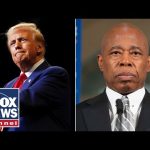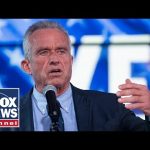Vice President J.D. Vance delivered a forceful and unapologetic message at the Paris Artificial Intelligence Action Summit, making clear that the United States will not tolerate unfair treatment of its tech companies or excessive regulation that stifles innovation. Representing the Trump administration’s “America First” philosophy, Vance’s speech underscored the U.S.’s commitment to fostering a pro-growth AI environment while rejecting the European Union’s more restrictive regulatory framework. His remarks highlighted a growing divide between America’s hands-off approach to technology and Europe’s push for tighter oversight.
Vance’s criticism of the EU’s Digital Services Act (DSA) was particularly pointed. He warned that such regulations, which require platforms to monitor content for misinformation and comply with strict transparency rules, could harm innovation and create barriers for American companies operating abroad. While European leaders argue these measures are necessary to ensure safety and accountability, Vance countered that they risk curbing free speech and empowering governments to dictate what constitutes acceptable content. His defense of American tech firms reflects a broader conservative concern about the dangers of censorship disguised as regulation.
The Vice President also emphasized the importance of maintaining U.S. leadership in artificial intelligence, framing it as a critical component of economic growth, national security, and global influence. He called on European nations to collaborate with the U.S. in fostering innovation rather than imposing burdensome restrictions. “AI is an opportunity, not a threat,” Vance declared, urging allies to adopt policies that encourage technological advancement instead of hindering it. His remarks resonated with conservatives who view overregulation as a threat to free markets and American competitiveness.
The summit also served as a platform for broader geopolitical messaging. By choosing Paris to deliver his first major foreign policy speech, Vance sent a clear signal about America’s priorities in the global AI race. He criticized authoritarian regimes like China for using AI as a tool of repression and warned European leaders against partnering with such nations. This aligns with the Trump administration’s broader strategy of countering Chinese influence while strengthening alliances with democratic nations.
While Vance’s speech drew praise from proponents of deregulation and free enterprise, it also sparked criticism from those who view America’s refusal to sign international AI agreements as isolating. However, conservatives argue that this stance reflects strong leadership and a refusal to compromise American interests for the sake of global consensus. By prioritizing innovation, free speech, and fair competition, Vance made it clear that the U.S. intends to set the standard for AI development on its terms.
Ultimately, Vance’s address reinforced the Trump administration’s commitment to protecting American businesses from foreign overreach while promoting policies that prioritize economic growth and technological leadership. As debates over AI regulation continue to unfold, his remarks serve as a reminder that America will not back down from defending its values and interests on the global stage. For conservatives, this approach represents a bold reassertion of American exceptionalism in an increasingly competitive world.




